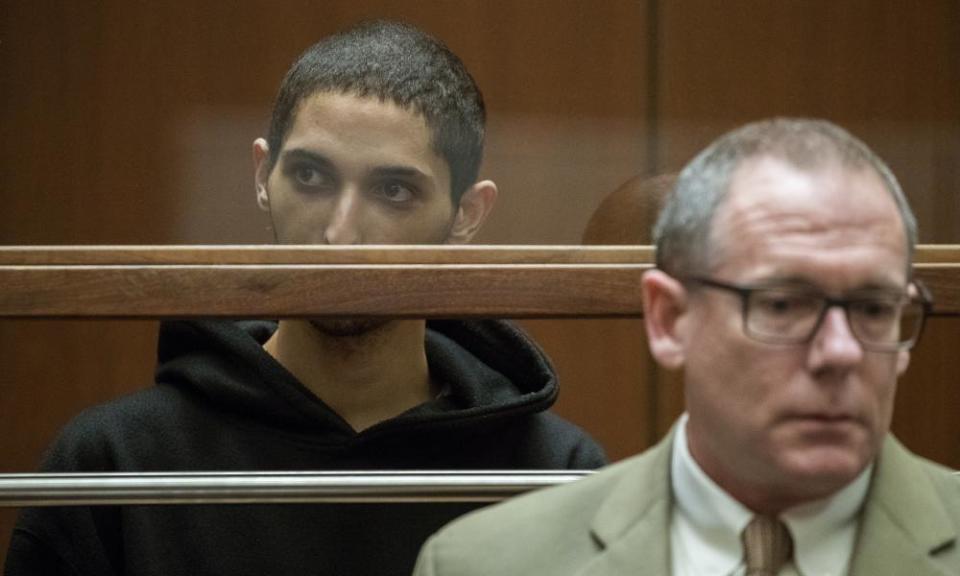'Swatting' death: accused man has made other false reports to police, officials say
Tyler Barriss, who allegedly made a hoax 911 call that led to a man’s death, has made about 20 previous false claims including bomb threats, records show

A man accused of making a hoax 911 call that led to another man’s death in Kansas has a history of making similarly false reports to the police, including bomb hoaxes centered around two schools and an ABC affiliate TV station, according to authorities.
Tyler Barriss, 25, is set to be transferred to custody in Kansas from Los Angeles, where he allegedly made the call to police that ended with an officer fatally shooting Andrew Finch, an unarmed Wichita man with no known connection to Barriss.
Police in Wichita said they received a call on the evening of 28 December claiming a man had been shot and two others had been taken hostage. When officers arrived at Finch’s home, the man reached towards his waistband when told to raise his hands and was shot, according to Troy Livingston, Wichita’s deputy police chief.
Livingston said: “Due to the actions of a prankster we have an innocent victim.”
Barriss is accused of making the call in order to exact revenge for a dispute arising from his activities as an online gamer. Police believe that Finch, who was studying to be a tattoo artist and had two children, had no connection to the dispute and was mistakenly targeted by the prank call, which is known as “swatting” after the involvement of police Swat teams.
According to police and court records, Barriss has made about 20 hoax calls and was sentenced to more than two years in jail in 2016 for making false bomb threats against two Los Angeles schools and an ABC affiliate TV station that led to their evacuations. Court records show that Barriss told one of the schools: “There are 10 backpacks that have bombs in them. Do not take this lightly.”
Barriss, who was released in January 2017, targeted numerous other venues as far away as Illinois and New Hampshire, according to police, before Finch’s death. Barriss’s grandmother, who had helped raise him and suspected him of making the bomb threats, alleged he issued “constant threats to beat my face bloody”.
Dexerto, a gaming website, reported that Barriss became embroiled in an argument over a $2 wager while playing Call of Duty, resulting in threats between him and another player to “swat” each other.
Finch was unrelated to the argument and his family said he did not play online games.
While Finch is thought to be the first direct fatality from swatting, the FBI has warned it is a growing problem in the US, with about 400 incidents occurring each year. Callers often use software to disguise their number when making the hoax calls.
The rise of swatting has led to calls for police to improve processes that identify hoax calls, and to better handle confrontations with innocent parties who are reported to be armed.
Lawyers for Finch’s family said that while “swatters” carry blame, ultimately it is the police’s responsibility to ensure they do not shoot people who pose no risk.
“Justice for the Finch family constitutes criminal charges against the shooting officer and any other liable officers as well as damages against the city of Wichita for the policies and practices of its police department,” the attorney Andrew Stroth, who is representing the family, told the Associated Press.

